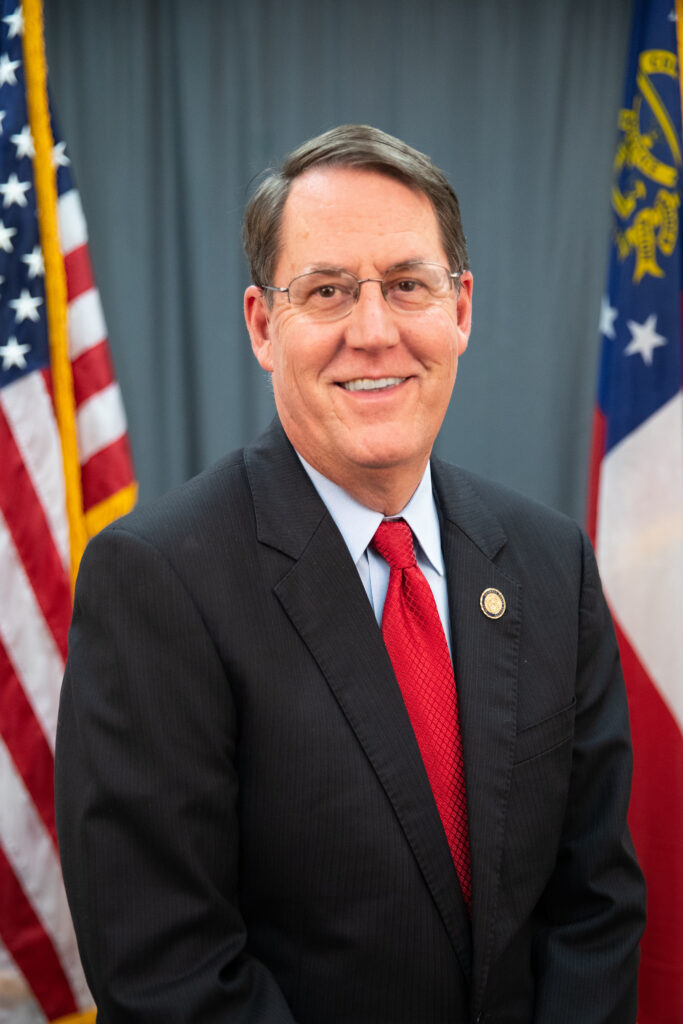
Third-party companies with a large say in setting prescription drug prices would face tighter regulations in Georgia under a bill state lawmakers mulled over this week.
Companies called pharmacy benefits managers (PBMs) act as go-betweens for prescribers and insurance companies that contract with health insurers to negotiate lower drug prices for patients.
But critics accuse them of muddling up the process, prompting increases in drug prices and unnecessary delays in filling prescriptions.
Senate Bill 313 would require pharmacy benefits-manager companies to adhere close to national average drug prices set by the federal government when reimbursing local pharmacies. The state Department of Insurance would monitor those reimbursement amounts.
The bill would also prohibit PBMs from charging extra fees or causing delays when requests are made for lower-priced drugs. Benefits managers would also have to distribute all rebates from drug makers to patients, rather than keeping a portion for themselves.
The bill follows legislation the General Assembly passed last year that prevents benefits-manager companies from steering patients to associated pharmacies with potentially higher costs.
Sen. Dean Burke, Senate Bill 313’s sponsor, said it aims to boost transparency over how drug prices are established between health plans, hospitals, pharmaceutical companies and pharmacy benefits managers.
“When it gets to [patients], there’s been so many convolutions it’s really hard to understand the process,” said Burke, R-Bainbridge. “What we’re trying to do is shine a little light on that.”

Hospital and pharmacy groups have praised the bill, describing it as a means to peel back a layer of the already complicated prescription drug marketplace. They say scaling down the role of third-party companies could also keep smaller pharmacies in Georgia from going out of business amid increasing drug costs.
“What we’re seeing is self-dealing on the grandest of scales in health care by the pharmacy benefits managers,” said Greg Reybold, vice president of public policy for the Georgia Pharmacy Association.
Jennifer Shannon, a pharmacist from Johns Creek, said she deals every day with paperwork hurdles and denials from benefits-manager companies that she claimed steer her customers to costlier drugs to receive rebates. The rigmarole risks harming people who end up not receiving medications they were prescribed, she said.
“Our patients that we care for are being stripped out of our hands and put into harm’s way,” Shannon said. “It is not right. It is wrong. And at my core, it hurts.”
Benefits-manager companies largely argue the bill would hamstring them when negotiating with big pharmaceutical companies for lower prices. That could drive up costs overall by giving drug makers free rein to set prices as they please, said Scott Turner, vice president of public affairs for the national trade group Pharmaceutical Care Management Association.
The bill also ignores the influences of other players like manufacturers and wholesalers in the complex series of transactions that lead to final drug costs, said Jesse Weathington, a consultant representing the insurer group Georgia Association of Health Plans.
“Our contention is that if transparency is a good thing, then it would be good to have transparency across the entire spectrum of actors in this ecosystem and not just the pharmacy benefits managers,” Weathington said Wednesday.
Some lawmakers on the full Senate Insurance and Labor Committee also cast doubt on the measure earlier this week. Sen. Larry Walker III, R-Perry, said he wondered if the proposed rules would hurt any benefits-manager companies that have helped lower prices.
“It seems like they wouldn’t exist if they didn’t add value somewhere along the line besides themselves,” Walker said Monday.
The Senate subcommittee considering the bill did not take any action after a three-hour hearing Wednesday.
Burke’s legislation is part of a slate of health-care measures filed in the 2020 legislative session that started last month. Other efforts include twin measures to end so-called “surprise billing” that hits Georgians with unexpectedly large hospital bills.
